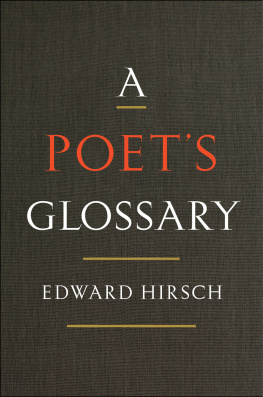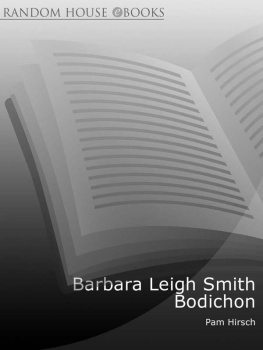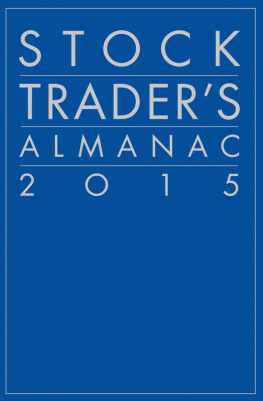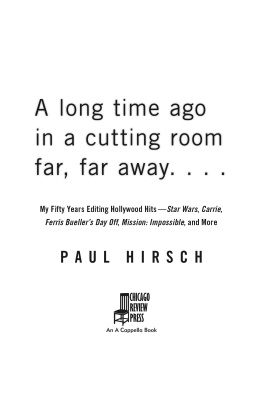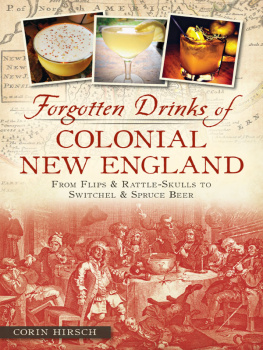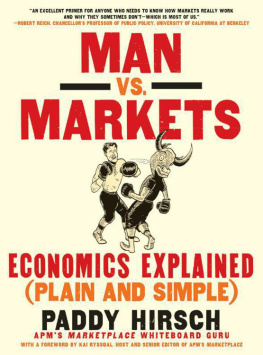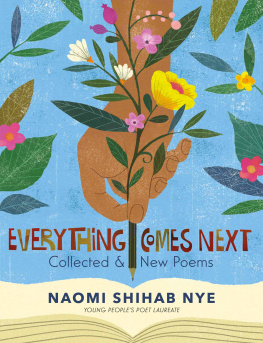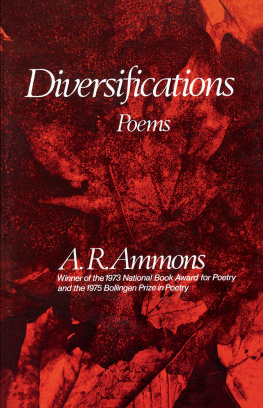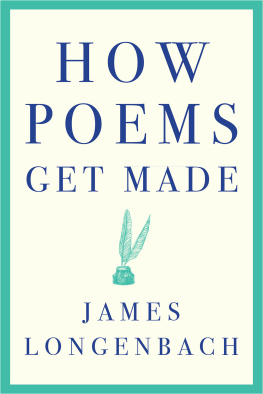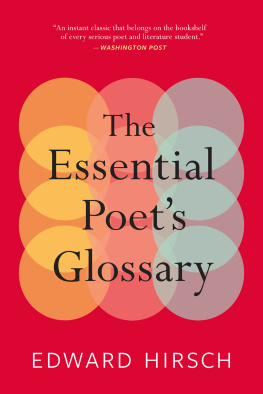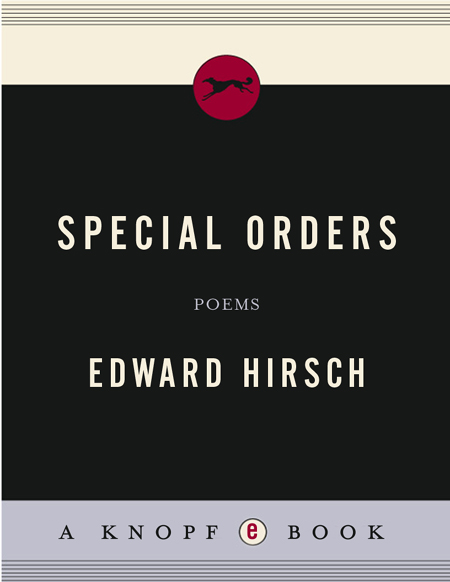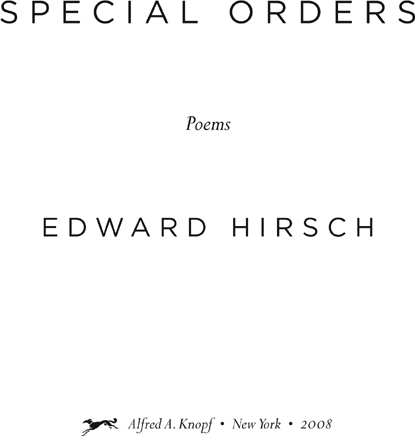CONTENTS
2. TO THE CLEARING
Special Orders
Give me back my father walking the halls
of Wertheimer Box and Paper Company
with sawdust clinging to his shoes.
Give me back his tape measure and his keys,
his drafting pencil and his order forms;
give me his daydreams on lined paper.
I don't understand this uncontainable grief.
Whatever you had that never fit,
whatever else you needed, believe me,
my father, who wanted your business,
would squat down at your side
and sketch you a container for it.
Cotton Candy
We walked on the bridge over the Chicago River
for what turned out to be the last time,
and I ate cotton candy, that sugary air,
that sweet blue light spun out of nothingness.
It was just a moment, really, nothing more,
but I remember marveling at the sturdy cables
of the bridge that held us up
and threading my fingers through the long
and slender fingers of my grandfather,
an old man from the Old World
who long ago disappeared into the nether regions.
And I remember that eight-year-old boy
who had tasted the sweetness of air,
which still clings to my mouth
and disappears when I breathe.
Branch Library
I wish I could find that skinny, long-beaked boy
who perched in the branches of the old branch library.
He spent the Sabbath flying between the wobbly stacks
and the flimsy wooden tables on the second floor,
pecking at nuts, nesting in broken spines, scratching
notes under his own corner patch of sky.
I'd give anything to find that birdy boy again
bursting out into the dusky blue afternoon
with his satchel of scrawls and scribbles,
radiating heat, singing with joy.
Playing the Odds
The Vegas lights are glaring at one a.m.
and I can still see my bulky first father
standing at the craps table
whispering softly to the dice,
Come on, baby, come home to Daddy.
He is surrounded by strangers who are
shouting out numbers, laying down bets,
and he is massively alone, like God
playing dice with the universe
on a felt table in a fake city.
My sister and I watch him from the crowd.
Our father wants a seven coming out.
He wants to roll dice until he can't win
anymore, and then he needs to lose.
But everyone likes him for that seven.
I was two years old when I last saw him
blowing on the dice in our kitchen.
These are the true numbers, he said,
cupping them in his palms,
and then he tossed them on the table.
I remember the sweaty warmth
of those dice before he threw them.
I wonder if God Himself
breathed into the nostrils of His son
with as much tenderness and desperation.
for Harold Rubenstein, 19282004
My Fathers Track and-Field Medal, 1932
Cup the tarnished metal in your palm.
Look closely and you'll see a squirrel
scampering up a beech-wood in the forest.
You'll see a cardinal flaming in the branches.
You'll see a fleet-footed antelope racing
through the woods ahead of the hunters.
Cold Calls
If you had watched my father,
who had been peddling boxes for fifty years,
working the phones again at a common desk,
if you had listened to him sweet-talking
the newly minted assistant buyer at Seagram's
and swearing a little under his breath,
if you had sweated with him on the docks
of a medical supply company
and heard him boasting, as I did,
that he had to kiss some strange asses,
if you had seen him dying out there,
then you would understand why I stood
at his grave on those wintry afternoons
and stared at the bare muddy trees
and raved in silence to no one,
to his name carved into a granite slab.
Cold calls, dead accounts.
Second-Story Warehouse
SUMMER 1966
Come with me to the second-story warehouse
where I filled orders for the factory downstairs,
and commanded the freight elevator, and read
high in the air on a floating carpet of boxes.
I could touch the damp pipes in the ceiling
and smell the rust. I could look over
the Puerto Rican workers in the parking lot,
smoking and laughing and kidding around
in Spanish during their break, especially Julia,
who bit my lower lip until it bruised and bled,
and taught me to roll cigarettes in another language,
and called me her virgin boy from the suburbs.
All summer I read Neruda's Canto General
and took lessons from Juan, who trained me
to accept orders with dignity dignidad
and never take any shit from the foreman.
He showed off the iron plate in his skull
from a bar fight with a drunken supervisor,
while the phone blinked endlessly from Shipping
& Handling, and light glinted off the forklift.
I felt like a piece of wavy, fluted paper
trapped between two sheets of linerboard
in the single wall, double-faced boxes
we lifted and cursed, sweated and stacked
on top of heavy wooden skids. I dreaded
the large, unwieldy industrial A-flutes
and the 565 stock cartons that we carried
in bundles through the dusty aisles
while downstairs a line of blue collars fed
slotting, gluing, and stitching machines.
Juan taught me about mailers and multidepths
and praised the torrential rains of childhood,
the oysters that hid in the bloody coral,
their pearls shimmering in the twisted rock,
green stones polished by furious storms
and coconut palms waving in the twilight.
He praised the sun that floats over the island
like a bell ringed with fire, or a sea rose,
and the secret torch that forever burns
inside us, a beacon no one can touch.
Come with me to the second-story warehouse
where I learned the difference between
RSC, FOL, die-cuts, and five-panel folders,
and saw the iron shine inside a skull.
Every day at precisely three in the afternoon
we delivered our orders to the loading dock.
We may go down dusty and tired, Juan said,
but we come back smelling like the sea.
The Swimmers
for Gerald Stern
We warbled on the muddy banks
and waded up to our throats in the Delaware River,
talking about Ovid washing himself in the Black Sea
and Paul Celan floating face-down in the Seine.


